The post Nelson Mandela International Day 2024: Celebrating a trailblazer appeared first on Hope and Homes for Children.
]]>Welcome to Nelson Mandela International Day. A day to celebrate the life, legacy and leadership of the famous South African visionary.
We’ve been working in South Africa since 2001, collaborating with our local partner organisations to bring children back to family. Today, we’re looking to the road ahead – continuing to build a future where no child grows up without a loving family. Anywhere.
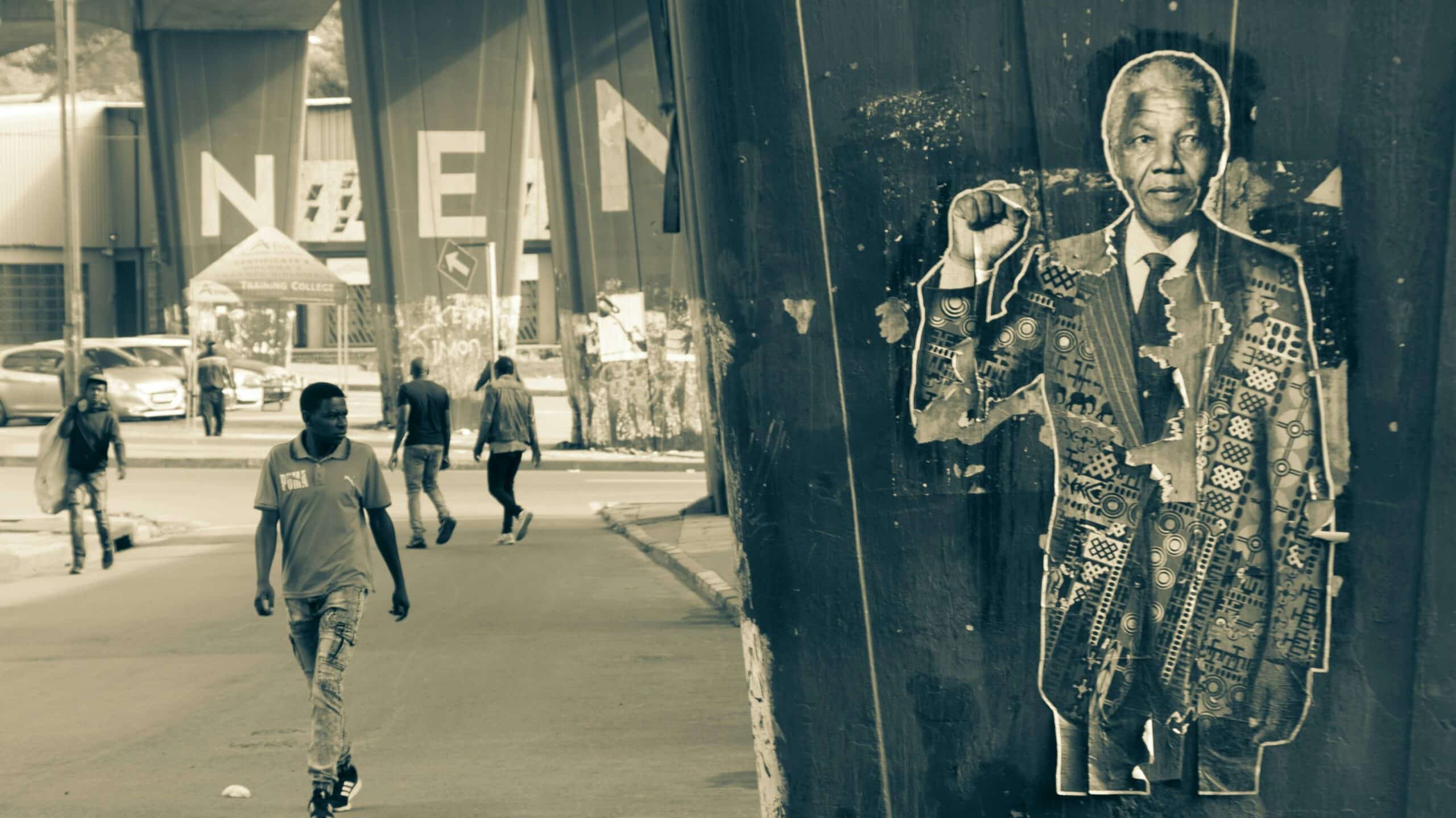
Unsplash – Gregory Fullard
The History of Nelson Mandela International Day
What is Nelson Mandela International Day?
Created by the United Nations in 2009, Nelson Mandela International Day is a day to honour the life and accomplishments of Nelson Mandela.
It’s celebrated on July 18th in commemoration of Mandela’s birthday. Every year, people are encouraged to spend 67 minutes – one for each year of Mandela’s political career – to remember his achievements as a figurehead for South African and global peace movements.
Who was Nelson Mandela?
Nelson Mandela was a revolutionary anti-apartheid leader in South Africa. He spent 27 years in prison for fighting against segregation.
After being freed in 1990, Mandela led the way to seeing the end of apartheid, creating a new, democratic, integrated South Africa. In ’94, he became the country’s first Black President.
Mandela’s work on equality and justice won him the 1993 Nobel Peace Prize, cementing his place as a global icon.
“The true character of a society is revealed in how it treats its children.”
Nelson Mandela
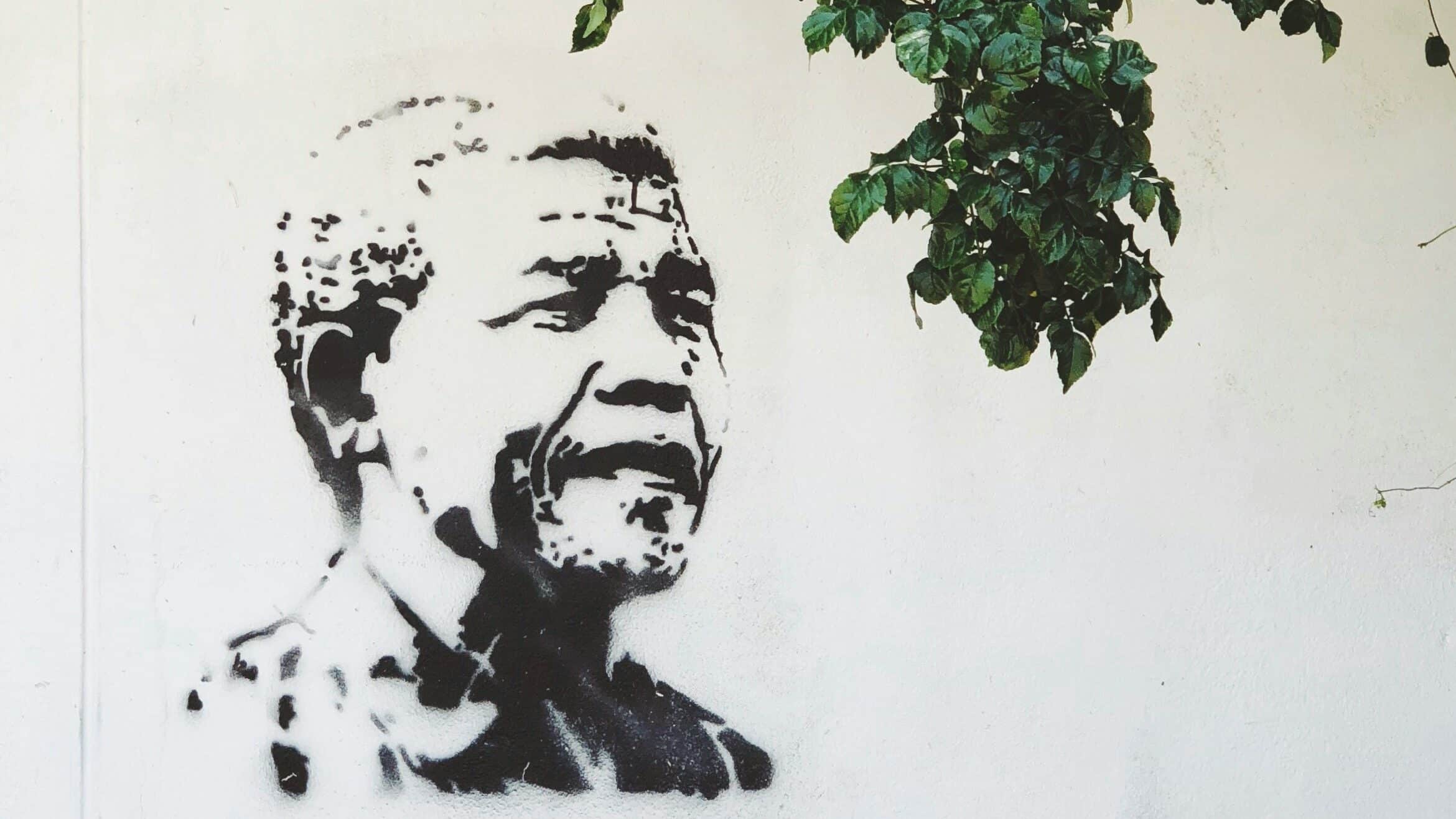
Unsplash – John Paul Henry
Celebrating Nelson Mandela International Day
Why is Nelson Mandela Day important?
Nelson Mandela Day is a huge day on the calendar, and not just in South Africa. It’s a day to honour Mandela’s vision of unity, of peace. It’s also a time to commemorate the ongoing struggle for justice.
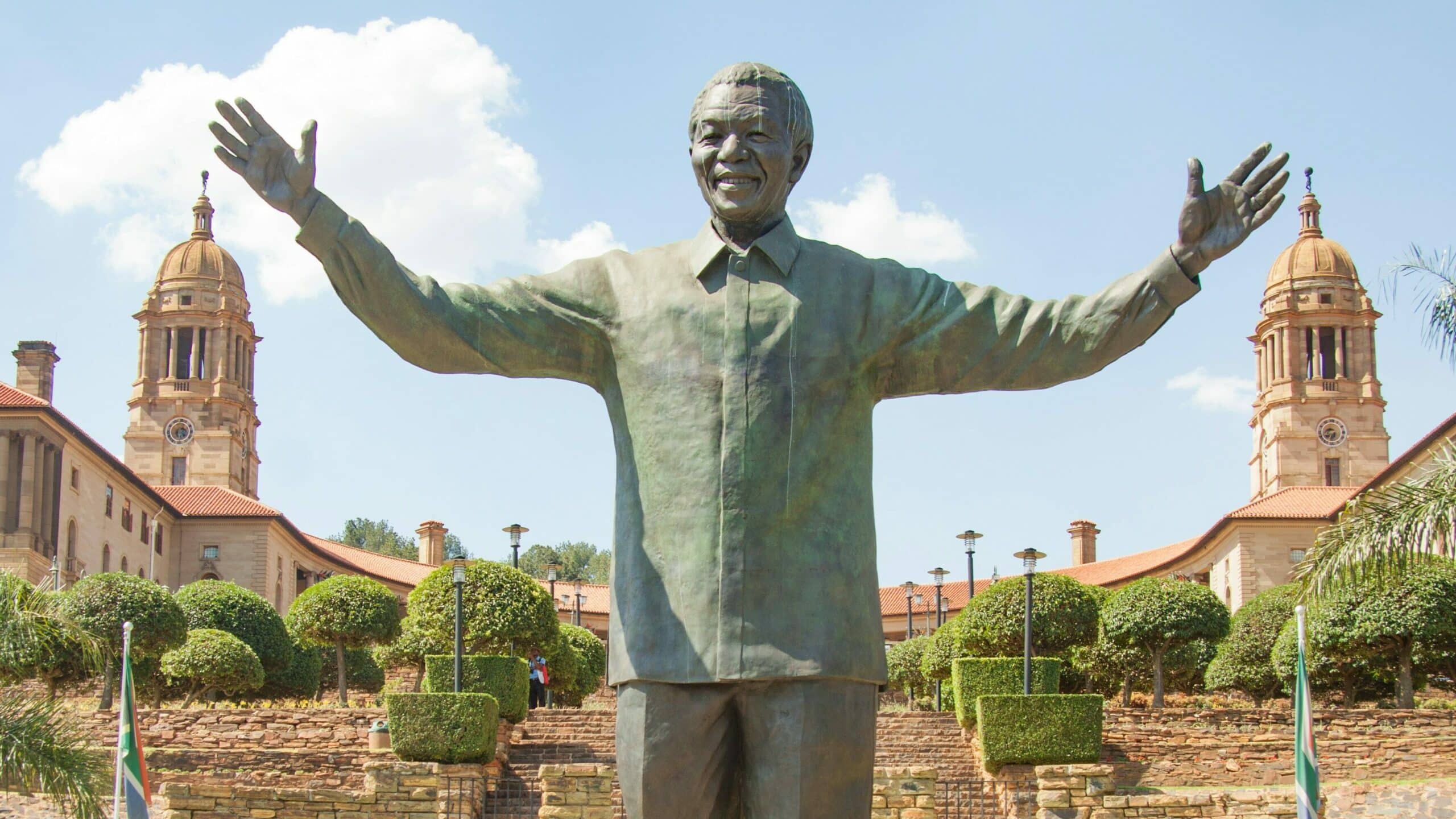
Unsplash – Fogelberg
Our work in South Africa
Bringing strength back to family
Nelson Mandela was a strong advocate for children’s rights. He believed every child deserves a loving, family environment. A place to grow. A place to thrive.
Our children are the rock on which our future will be built, our greatest asset as a nation. They will be the leaders of our country.
Nelson Mandela
Following in Mandela’s footsteps, our team in South Africa works with children, for children. We’re taking steps to secure a bigger, brighter and bolder future for all children in the country. And from education to development, emotional well-being to health, that all comes back to family.
Orphanages in South Africa
Right now, in South Africa, over 8,200 children are growing up inside 282 orphanages. That’s 2,800 children denied their right to family. To love.
And what’s worse, on average, 80% of these children have living families they could be growing up with. Which is exactly what we’re fighting for.
Read more about why children are separated from their families and placed in orphanages.
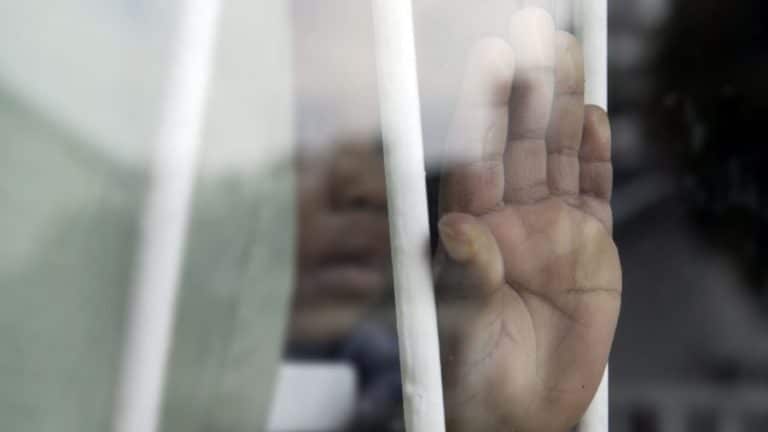
Hope and Homes for Children
How we’re helping
In South Africa, your donations are helping us to transform child care – moving away from orphanages and towards a system that puts family first.
In the Gauteng Province, the largest in South Africa, we’re working on closing down the remaining orphanages and getting the children living inside back to family.
Many of the families we work with face stigma due to HIV/AIDS. We’re helping them access the health, education and welfare services they need to overcome their challenges and be reunited with their children. Read more about how we support families here.
And, we’re preventing any more children from being placed in orphanages by training ‘Temporary Safety Parents’ – emergency foster parents that form the first line of defence against any more children being placed in orphanages, welcoming children into their homes for temporary, safe shelter.
Read more about our life-changing work in South Africa here.
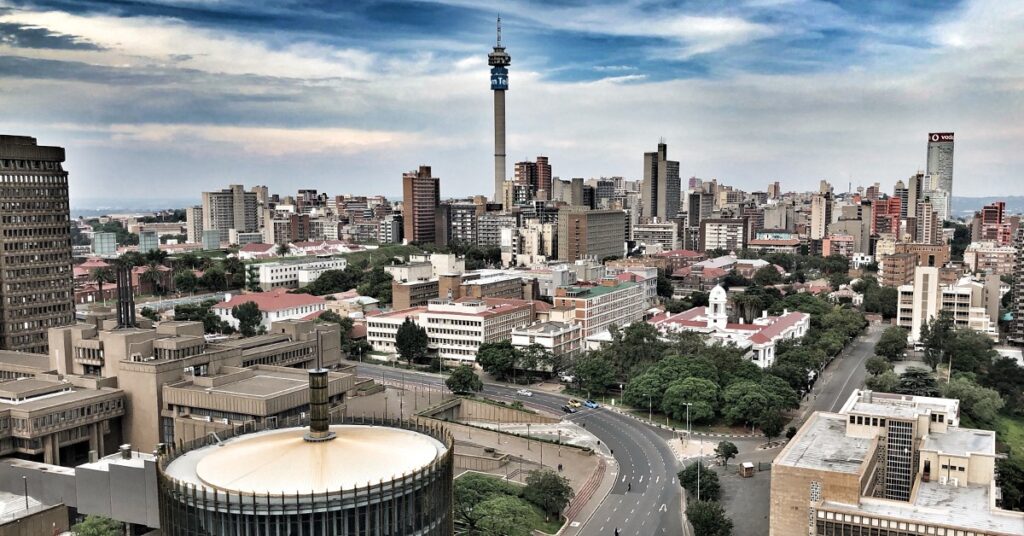
Hope and Homes for Children
Thank you for your support
This Nelson Mandela International Day, join us in celebrating Mandela’s legacy, the progress made by South Africa, and the road ahead as we create a better world for its children. Thank you.
If you’d like to hear more about our work in South Africa – and eight other countries across three continents – sign up to our Mailing List. We’ll keep you up-to-date with the latest news and developments for our life-changing work bringing children back to family.
Join the Mailing List
The post Nelson Mandela International Day 2024: Celebrating a trailblazer appeared first on Hope and Homes for Children.
]]>The post “Nothing is impossible” – Lourenza reflects on Women’s History Month appeared first on Hope and Homes for Children.
]]>Today we hear from Lourenza Foghill, our South Africa Country Director. Lourenza reflects on International Women’s Day, the power women hold to create change and the need for governments, services, social care provisions to give women the support they need to thrive.
What year did you join Hope and Homes for Children?
I joined Hope and Homes for Children in 2008 as a Communications Officer. Very soon, I became much more involved in programmatic work, leading the Witbank project in the Mpumalanga Province, which was funded by the mining community.
As a team, we implemented the ACTIVE Family Support model in communities in South Africa, focused on strengthening families in Malenge, KwaZulu-Natal (deep-rural); Moretele Hammanskraal (peri-urban) and Witbank, Mpumalanga Province.
I left Hope and Homes for Children in 2011 to pursue personal interests and was then approached by the organisation in 2015 to lead the South Africa Care Reform work. I am now Country Director for South Africa.
What does International Women’s Day mean to you, as a leader of an organisation working to ensure every child has a safe family home in South Africa?
International Women’s Day is a celebration of the power, resilience and courage of women working every day to keep their families safe, strong and happy in the face of ever-decreasing socio-economic and socio-political well-being.
In my work across Africa, I have focused on highlighting the countless selfless acts of courage I have seen from thousands of women. These included orphaned girls dropping out of school to care for their younger siblings, young mothers working two or three jobs to keep food on the table, and older women steadfast as the anchor of their families.
In South Africa, women of all ages are at high risk of abuse and murder, usually perpetrated by their partners. In a largely patriarchal society, it is even more difficult for women and girls to realise their inalienable, constitutionally guaranteed human rights.
What’s more, ‘choice’ is not given to women in South Africa, and beyond. Millions of women have to bear the brunt of choices made for or imposed on them by others. Yet they survive and thrive, creating warm, loving and safe homes for their families, even under the worst living conditions.
Personally, International Women’s Day serves as a reminder of the responsibility I have to give meaning to the sacrifices and hard work of the many generations of strong women whose blood flows in my veins.
I have the opportunity to make a real difference – to catalyse change in a country that many have described as a failing state.
For me, my role is more than a job. I believe it is imperative to work and lead on critical systems change and to advocate for a four-way partnership between communities, NGOs, government and businesses to support children and families.
This path is the only way forward in order to open up critical development pathways for children and women in South Africa. Through this, we can give meaning to the realisation of human rights.
What is your biggest achievement or proudest moment as a leader since you joined HHC? How did this make you feel?
There are many ‘critical moments of change’ that I am very proud of and that give me the courage to continue on this journey.
If I had to select the two most meaningful moments of change, these would be the design and implementation of the AFS-KHUSELA Community Prevention model that places agency back into the heart of communities, and the opportunity we had to share our learnings on influential global childcare reform platforms, including the invitation to participate in the Konrad Adenauer Stiftung webinars and working groups.
The Hanover Park AFS-KHUSELA project is another huge moment of change. We were able to prevent 89 families from separation in one of the most violent and marginalised communities in the country where even the police and government officials are afraid to enter the community. I find this achievement hugely inspirational and motivating.
The strong working relationship that we have built with the government is also a proud moment; able to withstand robust debate, but always working together to achieve the best interest of children.
Why is it important that women’s voices are included in decision-making around childcare reform in South Africa?
Women are the architects, nurturers, carers and backbone of society in South Africa. Therefore, collectively, they have to hold the primary right to participate in all actions to catalyse systemic reform in South Africa.
How do community services and access to childcare help break the glass ceiling for women in South Africa?
Women, as the primary caregivers and nurturers of children, are often caught up in the web of responsibilities and ecosystems characterised by the lack of basic services and specialist support.
But, it is the legislated and constitutional duty of government to provide good quality basic service delivery, like housing, water supply, sewage reticulation, power supply, law and order, education and primary healthcare to families living in communities.
Additionally, government and NGOs should, in terms of the childcare legislation, provide early childhood development centres, respite care and other childcare support services in local communities. This provision will enable mothers to access further training, and education and to enter into formal employment. Without these critical support services, millions of mothers will remain trapped and unsupported; sustaining a pernicious cycle of generational poverty and family breakdown.
What message or words of encouragement do you have for aspiring women wanting to make positive change in the world?
Nothing is impossible – you have the resilience, entrepreneurial skills, wisdom and heart needed to follow your dreams and make these real. Focus on what you want to achieve and do not be deflected from your vision and pathway.
Lourenza Foghill is National Director of One Child One Family – Hope and Homes for Children's programme in South Africa.
The post “Nothing is impossible” – Lourenza reflects on Women’s History Month appeared first on Hope and Homes for Children.
]]>The post Mr Beast’s new YouTube campaign: why rebuilding orphanages will create orphans, not help them appeared first on Hope and Homes for Children.
]]>The world’s most popular YouTuber, MrBeast (131M subscribers), has raised $41,000 so far with a video asking his followers to help him rebuild South African orphanages.
The video (‘We Saved an Orphanage’) has hit nearly 5 million views in just a fortnight.
And although MrBeast’s mission “to make the world a better place” is admirable, rebuilding orphanages can expose children to abuse, neglect and violence.
Denied the chance to grow up in a family, they are also more likely to become homeless later in life, have run-ins with the law, and experience mental and physical health issues.
That’s why there’s a growing global movement to make orphanages history. It’s a movement backed by the UN, EU, Commonwealth and South African Government. And it’s a movement that Mr Beast’s YouTube video could fly directly in the face of.
Orphanages harm children
Of course, we’re in awe of MrBeast’s ability to inspire his viewers and to help protect those who need it most. That being said, there is something everyone needs to know about orphanages: Children do not want to grow up in them.
The 5.4 million children confined in orphanages worldwide (including the tens of thousands in South Africa) want to grow up in loving families – not orphanages. The good news is, that’s completely possible.
How? Because 80% of children living in orphanages worldwide, still have living families who, with the right support, could care for them at home.
What is the real solution?
Too often donations don’t help orphans – they create them. Here in South Africa, for instance, a recent report exposed how an influential child protection organisation wrongfully removed 2,000 children from their families. We know this is not an isolated case.
Thousands of children are being ripped away from their families and placed in orphanages, rather than supported to stay together with their loved ones. Often these children are treated as commodities to attract donations from well-meaning donors. The more children the orphanage has, the more donations the orphanage owner pockets.
This is why it’s so important to make orphanages history in South Africa and worldwide.
Over the last 30 years, Hope and Homes for Children has worked in 30 countries, showing governments how it’s possible to close orphanages and reunite children with relatives. When that’s not possible, our social workers find and train foster parents in the same country, including specialist foster carers for disabled children. Because children deserve better than orphanages and are safer and happier in families.
Join our movement
We’re leading the global movement to make orphanages history. And we are not alone – organisations like the UN and EU, people like Sir Elton John, and our friends at Lumos all support it. This isn’t a fundraising campaign. This is a movement to create real, lasting change.
We’d love for MrBeast, and his wonderful followers, to join us – starting out in South Africa. Let’s give children loving families – never orphanages.
It’s time to transform the way children are cared for worldwide.
Author: Lourenza Foghill
Lourenza Foghill is National Director of One Child One Family – Hope and Homes for Children's programme in South Africa.
The post Mr Beast’s new YouTube campaign: why rebuilding orphanages will create orphans, not help them appeared first on Hope and Homes for Children.
]]>